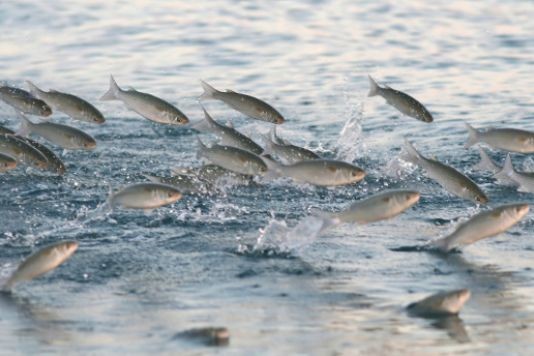More sustainable fishing on horizon as discard ban comes in

Quotas now introduced which mean smaller fish cannot simply be discarded.
From the beginning of this year, fishermen and women are no longer allowed to throw back the majority of their unwanted catches, in an important step forward for sustainability.
The ban is applicable to all fishing done in the pelagic levels of the ocean, which is the depth at which species like mackerel and herring dwell. Both of these fish, and many others, are assigned quotas per boat, meaning only a certain number of fish may be caught per year.
How will the ban work?
Fish must be landed if the boat is specifically catching quota species. If there is a by-catch of quota species, that is when there was no intention to catch them, they must still be landed. This includes any fish that are below the minimum landing size.
While that last sentence may seem counterintuitive, Debbie Crockard, Fisheries Policy Officer at the Marine Conservation Society (MSC), says that “under previous legislation undersized fish that were caught were not allowed to be landed. This meant that they were discarded, most often dead, to the sea.” In contrast, the ban on throwing these fish back into the sea means the fish will be landed and counted against the vessel's quota.
“The idea here is to create a negative incentive to catching undersized fish,” she explains. Disposing of small fish in favour of larger catches later in the day is no longer allowed, which means it is undesirable to catch the small fish in the first place, as they cannot be sold for human consumption and are therefore less profitable but still count agains the quota.
Catching undersized fish can be avoided by using larger net meshes, which smaller fish can swim through, and if a particular area that is being fished is yielding too many juvenile fish, the area may be closed to prevent them from being caught.
Species that are likely to survive, according to scientific evidence, will be exempt from the ban. “Sharks, skates and rays are quite easy to distinguish from the majority of fin fish,” says Debbie Crockard, and so they can be picked out and returned quickly. It’s also important that fish are handled in accordance with best practice procedures, as this can “significantly improve their post-capture survival.”
How can this be enforced?
The isolated locations fishing boats reach mean enforcing the discard ban presents difficulties. While pelagic fishing has a relatively low level of discard, the gradual introduction of a ban between now and 2019 for demersal fish, which are those at the bottom of the ocean such as cod, plaice and hake, will pose more of an issue, says the MCS.
Some boats already have CCTV systems in place, and the Marine Management Organisation (MMO) can track positioning of fishing vessels and will be inspecting boats at sea and in port, as well as visiting premises and markets. The MMO, which is an arm of the Government's DEFRA, now has the power to punish discarding with a fine of up to £10,000, though it says it will aim to educate as a first point of call following the immediate introduction of the new rule.
Alternatively, for more serious offences, a court could order the payment of an unlimited amount, and fish and equipment can be confiscated.
What does it mean for our food?
Hopefully, the discard ban will help to return stocks to levels that mean it will be easier to source fish safe in the knowledge that our purchase isn’t contributing to diminishing populations of fish in our sea.
The Marine Conservation Society regularly updates its guidelines on which fish should and shouldn’t be eaten in an effort to make people aware of the sustainability issues surrounding the fishing industry.
You can play your part by checking its guide before you buy your fish.
Do you think the ban will make a difference? Do your shopping habits already support sustainable fishing? Let us know in the Comments below.
You might also like:
Why we need to stop eating this type of salmon
Comments
Be the first to comment
Do you want to comment on this article? You need to be signed in for this feature